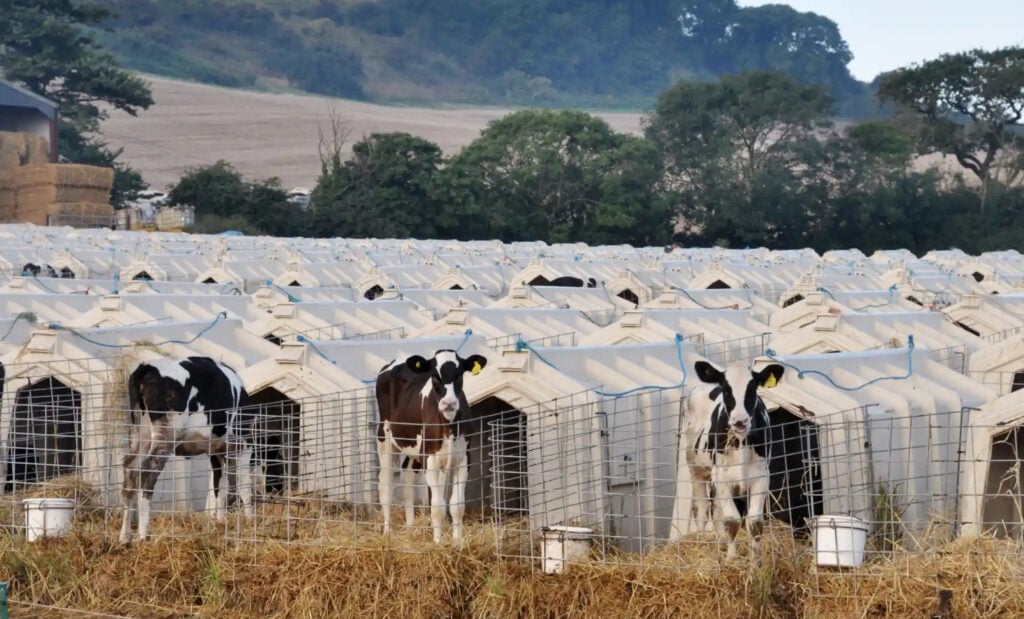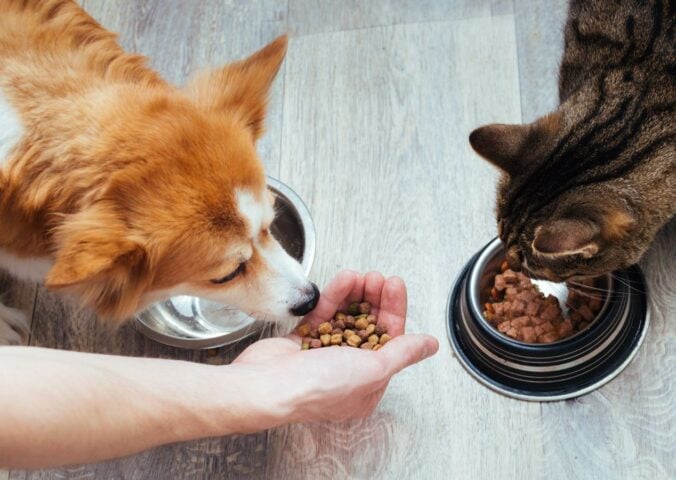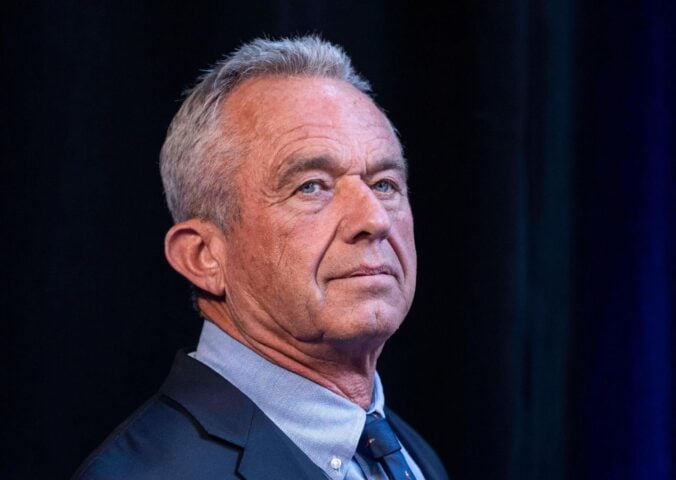As public opinion continues to shift, increasing numbers of people are falling out of love with dairy products. Enter Februdairy…
Recent years have seen a significant shift in consumer attitude towards dairy, as more people understand the environmental, health and animal welfare issues associated with the industry.
The UK is now drinking 50 percent less milk than they were in 1974, according to a report by Agriculture and Horticulture Development Board (AHDB).
Dairy on the decline
The UK’s leading vegan campaigning charity, Viva!, has investigated countless British dairy farms and exposed the brutal reality of the industry – helping many people make the switch to dairy-free.
An increasing number of dairy-alternatives are widely available including cheeses, yogurts, milks, and chocolates. Most supermarkets have their own ranges of vegan food – proving these products are big business.
Although the milk market is much bigger, valued at over £3 billion, demand for cow’s milk is declining and plant-alternative sales have surged 10 percent over the past two years.
It’s undeniable, dairy-free sales are booming and show no signs of slowing down. Considering these factors, it comes as no surprise that the dairy industry is desperately trying to claw its way back into public favor.
So what on earth is Februdairy?
Februdairy is a social media campaign created by the dairy industry in a desperate attempt to boost sales and portray dairy in a more favorable light. This is the industry’s fourth annual campaign and is pitched as a direct response to Veganuary.
This year Veganuary announced a record number of sign-ups with a whopping 400,000 people going vegan for a month. Milk producers, pro-dairy consumers, and industry experts, are encouraged to create and share pro-dairy content during the month of February on social media using the hashtag #Februdairy.
Social media Vs Februdairy
When the campaign launched in February 2017, the vegan community commandeered the hashtag to highlight the darker side of the dairy industry, where pain and suffering is an everyday occurrence.
Social media has played an instrumental role in the rise of veganism. It’s clear vegans are well versed in using it as a platform to educate and inform others.
A slew of animal rights advocates and groups such as Viva!, Animal Equality, and Animal Aid, use Februdairy as an opportunity to expose the cold-hard facts surrounding dairy production .
This doesn’t go down well with the dairy industry….
Dairy: the facts
A surprising number of people are still unaware that cows must be pregnant to produce milk. Cows are artificially inseminated and their calf is taken away shortly after they give birth.
There is no time for maternal bonding when profits are priority. If the calf is female she will face the same fate as her mother. But, if he’s male he will be raised for veal. Or, they are shot shortly after birth as an unwanted by-product of the dairy industry. These are all facts that the dairy industry chooses not to shout about – not surprising, is it?
The environment
In addition to these abhorrent practices, the livestock industry is having a detrimental effect on our planet.
Moreover, dairy is the second biggest greenhouse gas emitter in the food production industry. This is primarily due to the huge amounts of soya needed to feed cows. And, the methane they subsequently release. Plant-based milk is better for the environment. In particular, oat and hemp milk have the smallest environmental impact.
Even dairy farmer Andy Venables admitted: “The dairy industry could learn a lot from the vegan movement, which had attracted huge media coverage despite accounting for just 1.16 percent of the UK population.”
Ditching dairy
Although the industry admits it needs a re-brand… It seems to be in denial about why people are ditching dairy for plant-based alternatives.
Until dairy advocates understand this, it looks like we’ll be seeing a lot more Februdairy-style campaigns from the industry as veganism continues to grow globally.
Visit Viva!’s Scary Dairy website for more information. You can find more information on the health, environmental, health, and animal welfare issues caused by the dairy industry here.






